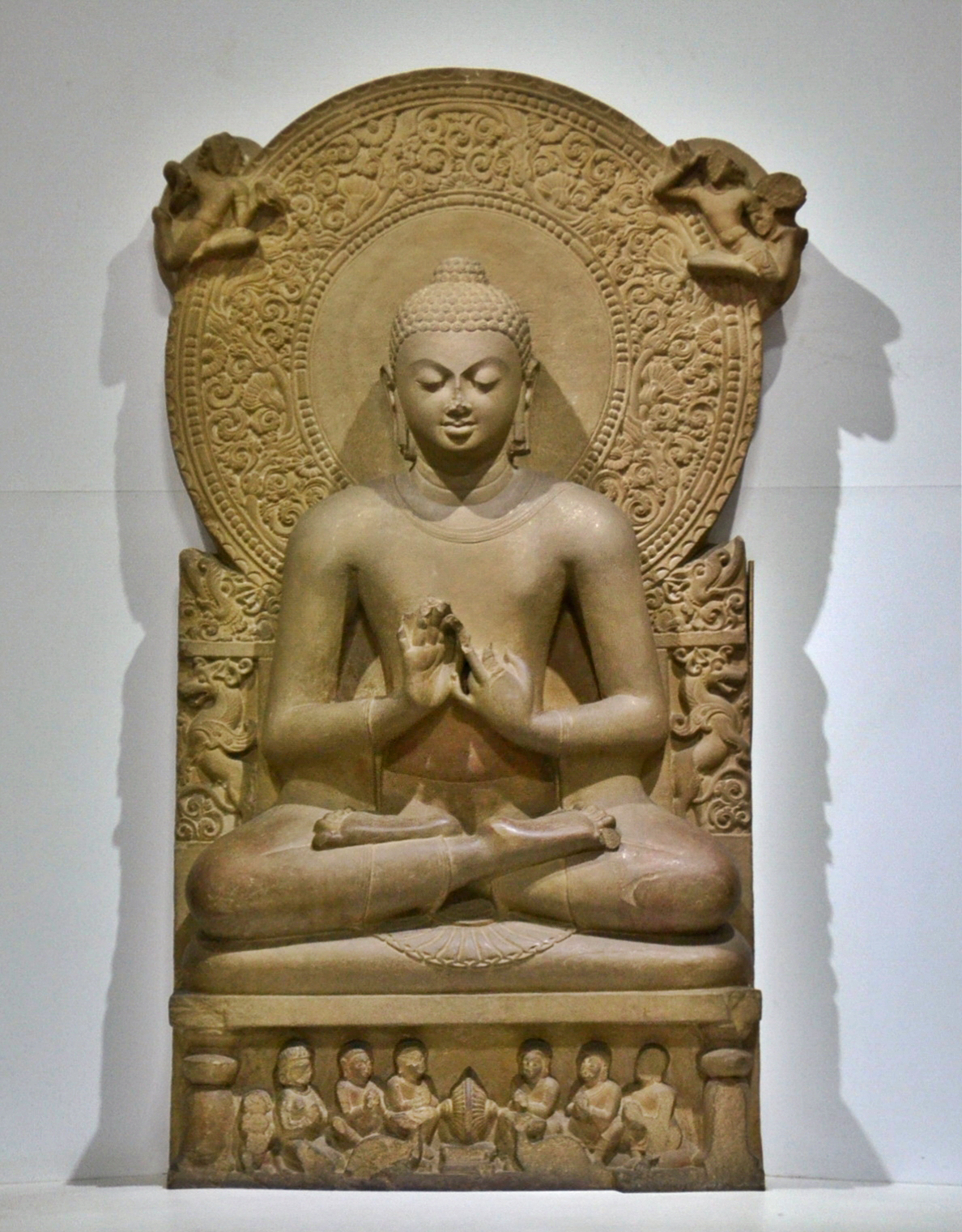Hi Ho,
Continuing this special series of "readings that will help in understanding Zen readings" ...
This is something that I introduced here once before, but is well worth re-reading and understanding by all of us.
The topic is a very clear list of "Eight Types of Enlightenment" as typically found in various forms of Buddhism over its history and currently, meaning the very different and often totally inconsistent (although sometimes overlapping) visions that various schools of Buddhism propose as the ultimate "goal" at the end of the Buddha's rainbow. Different strands of Buddhism really do have very unique ideas on this whole "Enlightenment" whatever, and anyone studying Buddhism can become tangled up in the many ways that teachers of various schools, in different books and teachings, often are proposing radically different goals and different ways to get there. Even within the Zen Schools, or even contained in the vision of a single teacher, the ideas often get mixed & matched and stuck together. Thus, it is important for students to be able to recognize where a teacher's teachings are coming from and pointing to (and neither/both coming & going), and some ability to see each of these separate, sometimes tangled threads.
Please download and read the following [PDF]:
The list is from a book called "The New Buddhism" by David Brazier (a book primarily on the theme of Buddhism as a model for engaged, socially conscious action ... but which also touches on other subjects such as this). What is also interesting is that Mr Brazier seems --not-- to be a Zen Practitioner (I believe he is currently a Pure Land student), and thus offers some criticisms of what he sees as the "Zen" concept(s) of Enlightenment. This will give us a chance to talk about those as well, although (of course, being from within the Zen tradition) I do not think many of his criticisms of "Zen enlightenment" are accurate. Naturally, he seems to propose a "Pure Land" concept of Enlightenment as the best.
Despite that, I really think you will find it informative, and helpful to your practice and understanding of Buddhist books and teachings.
As always, I emphasize ... different ways up the mountain for different mountaineers and, anyway, ultimately 'what mountain?' (though, as you may see, not everyone throughout Buddhist history might agree with that!)
Gassho, Jundo
Continuing this special series of "readings that will help in understanding Zen readings" ...
This is something that I introduced here once before, but is well worth re-reading and understanding by all of us.
The topic is a very clear list of "Eight Types of Enlightenment" as typically found in various forms of Buddhism over its history and currently, meaning the very different and often totally inconsistent (although sometimes overlapping) visions that various schools of Buddhism propose as the ultimate "goal" at the end of the Buddha's rainbow. Different strands of Buddhism really do have very unique ideas on this whole "Enlightenment" whatever, and anyone studying Buddhism can become tangled up in the many ways that teachers of various schools, in different books and teachings, often are proposing radically different goals and different ways to get there. Even within the Zen Schools, or even contained in the vision of a single teacher, the ideas often get mixed & matched and stuck together. Thus, it is important for students to be able to recognize where a teacher's teachings are coming from and pointing to (and neither/both coming & going), and some ability to see each of these separate, sometimes tangled threads.
Please download and read the following [PDF]:
The list is from a book called "The New Buddhism" by David Brazier (a book primarily on the theme of Buddhism as a model for engaged, socially conscious action ... but which also touches on other subjects such as this). What is also interesting is that Mr Brazier seems --not-- to be a Zen Practitioner (I believe he is currently a Pure Land student), and thus offers some criticisms of what he sees as the "Zen" concept(s) of Enlightenment. This will give us a chance to talk about those as well, although (of course, being from within the Zen tradition) I do not think many of his criticisms of "Zen enlightenment" are accurate. Naturally, he seems to propose a "Pure Land" concept of Enlightenment as the best.
Despite that, I really think you will find it informative, and helpful to your practice and understanding of Buddhist books and teachings.
As always, I emphasize ... different ways up the mountain for different mountaineers and, anyway, ultimately 'what mountain?' (though, as you may see, not everyone throughout Buddhist history might agree with that!)
Gassho, Jundo






 Shane
Shane

Comment